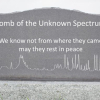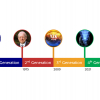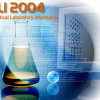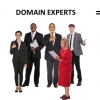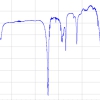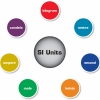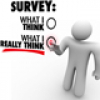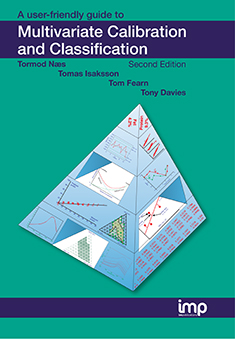Antony N. Daviesa,b and Lutgarde Buydensc
aSERC, Sustainable Environment Research Centre, Faculty of Computing, Engineering and Science, University of South Wales, UK
bExpert Capability Group – Measurement and Analytical Science, Nouryon Chemicals BV, Deventer, the Netherlands
cChair EuroAnalysis2021, Radboud University, IMM Analytical Chemistry & Chemometrics, HG01.715 Heyendaalseweg 135, 6525 AJ Nijmegen, the Netherlands. E-mail: [email protected]
To run a top international conference that meets with approval from all attendees from industry as well as academia requires a highly skilled and experienced planning and execution team. It also is essential to start early with the planning, so I travelled down to Nijmegen to discuss how preparations for EuroAnalysis 2021 were coming along with Lutgarde Buydens who is chairing the event. One topic was how the community of Spectroscopy Europe readers could help in turning this into a very memorable event!
Ensuring EuroAnalysis 2021 addresses real needs
EuroAnalysis 2021 will be held over five days at the end of August at the beautiful conference venue, De Vereeniging, next to the historical town centre of Nijmegen. So apart from enjoying the famous Dutch hospitality, we should be in for some fantastic weather. The conference itself will be structured to give equal time to how analytical science is addressing societal needs, as well as to more developments in particular scientific analytical techniques. So, what areas can we expect to see focussed on?
Current planning sees three afternoon sessions dedicated to Societal Challenges. Table 1 shows the Societal Challenges from the old Horizon 2020 EU funding structure compared against the new (2021–2027 100 billion €) Horizon Europe successor programme “clusters” and “mission areas”. More than half the total EU research budget is planned to be spent in the Global Challenges and European Industrial Competitiveness Pillar 2.
Table 1. Comparison of Horizon 2020 Societal Challenges with Horizon Europe Global Challenges and Mission Areas.
EU Horizon 2020 | Horizon Europe |
| Pillar 2 Global Challenges and European Industrial Competitiveness Clusters
|
Mission Areas
|
Unsurprisingly, Analytical Spectroscopy or advanced multivariate spectroscopic data processing does not seem to feature at the forefront of European thinking. However, I am afraid I am preaching to the converted when I state that without strong research programmes in analytical science, NONE of the Global Challenges or Industrial Competitiveness drives will get very far. As to the Mission Areas, it is clear that strong robust and verifiable analytical data must be at the heart of all scientific advances in all the Mission Areas.
The initial drafting of first Horizon Europe Work Programme based on the Strategic Plan is currently underway, but there is already more information around what will potentially fall under the Cluster headings (see Table 2).1
Table 2. Some more details on thinking around the content of Horizon Europe published in 2019.
Clusters | Areas of intervention | |
Health |
|
|
Culture, creativity and inclusive society |
|
|
Civil security for society |
|
|
Digital, industry and space |
|
|
Climate, energy and mobility |
|
|
Food, bioeconomy, natural resources, agriculture and environment |
|
|
EuroAnalysis 2021 will be one of the first major networking opportunities for analytical scientists to get together after the new Horizon Europe funding stream goes live. If we look at the intervention areas, it is clear that the research we currently undertake can be applicable across many of the intervention areas: work on lab-to-the-sample is as applicable to Cultural Heritage as it is to Personalised Medicine.
We all know that the analytical chemist is today’s most obvious example of a modern polymath. If we believe Wikipedia, then Johann von Wowern apparently defined polymathy in 1603 as “knowledge of various matters, drawn from all kinds of studies... ranging freely through all the fields of the disciplines, as far as the human mind, with unwearied industry, is able to pursue them”, which seems as applicable to analytical scientists now as then.2
So, the conference structure of reserving the mornings for technology-focussed presentations will allow for the scientific developments in general to be presented. This should avoid the danger seen at many conferences of the sessions only being organised by application areas, causing many participants to miss key presentations of a fundamental development which they can apply equally well to their own research in a different field.
The big challenge for the hosts, the International Advisory Committee and the Scientific Committee is to get the mix right!3
Who are the hosts and how can we help?
As I mentioned above, the conference is being chaired by Lutgarde Buydens, great for readers of this column due to the long-standing innovation from her and her team at Radboud University in the field of chemometrics and advanced analytical data processing! So, the pedigree of the responsible organisers is surely up to the task, but in our discussions it was clear that the organisers were keen to receive any feedback on the global challenges people or communities would like to see covered. Or maybe even groups who would be interested in using the event to get together at a wonderful location and organise their own sessions.
EuroAnalysis 2021 will be the 21st biannual meeting of the EuChemS Division of Analytical Chemistry, hosted by the Section Analytical Chemistry (SAC) of the Royal Dutch Chemical Society (KNCV) and COAST, the Dutch Community of Innovation for Analytical Science and Technology, who have been enormous supporters of innovative data handling and data processing projects in recent years. Many of which we have discussed in this column.
So please, if this short column has sparked any ideas about the topics raised that you would like to share either get in touch with myself, Lutgarde or maybe one of your friends in the organising committees—this is the best way to ensure that EuroAnalysis 2021 will focus on current topics of interest to you all!
References
- https://ec.europa.eu/info/files/horizon-europe-investing-shape-our-future_en
- K. Murphy, “Robert Burton and the problems of polymathy”, Renaissance Studies 28(2), 279 (2014). https://doi.org/10.1111/rest.12054
- https://congresscompany.eventsair.com/euroanalysis-2021/commitees





